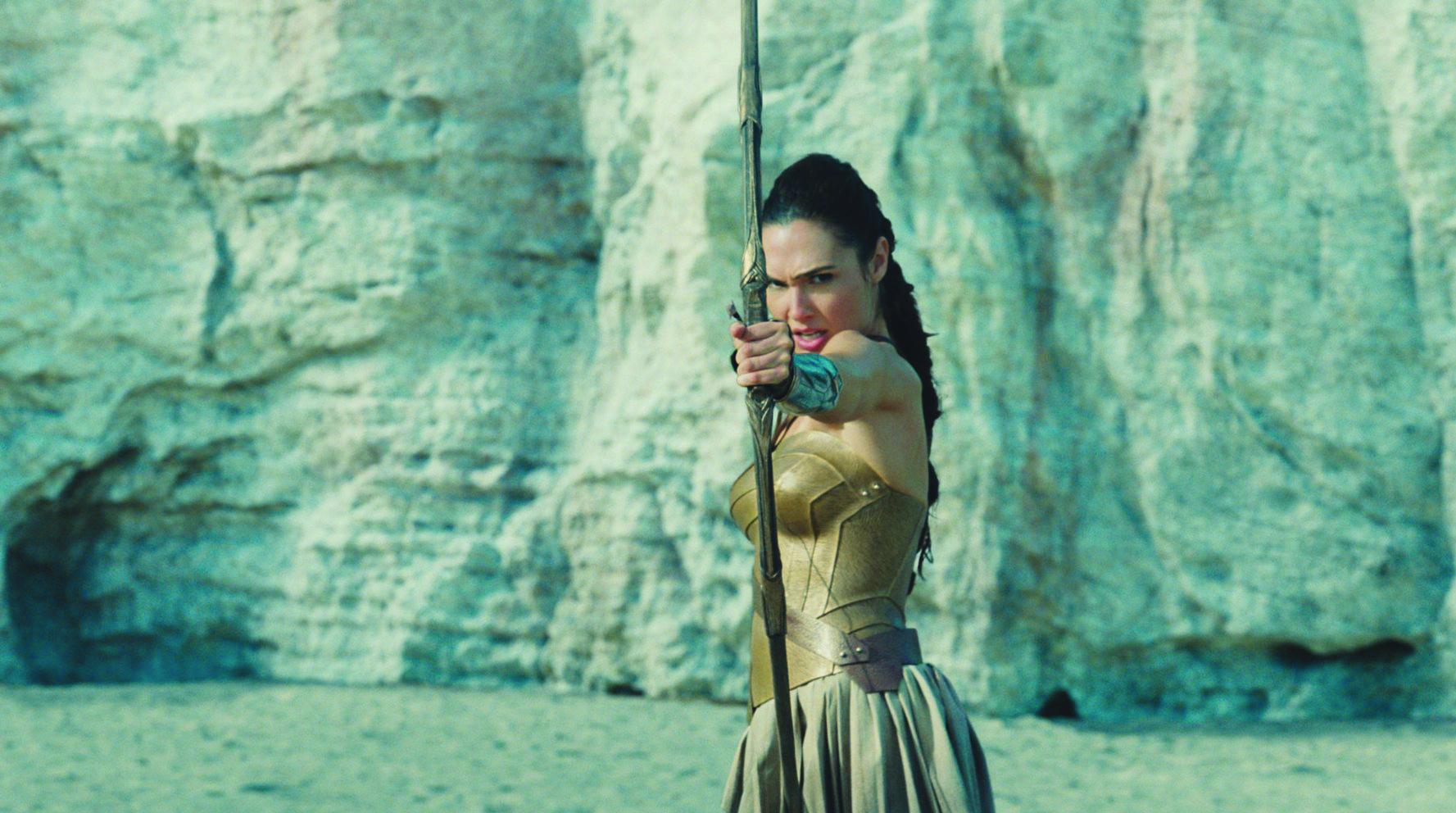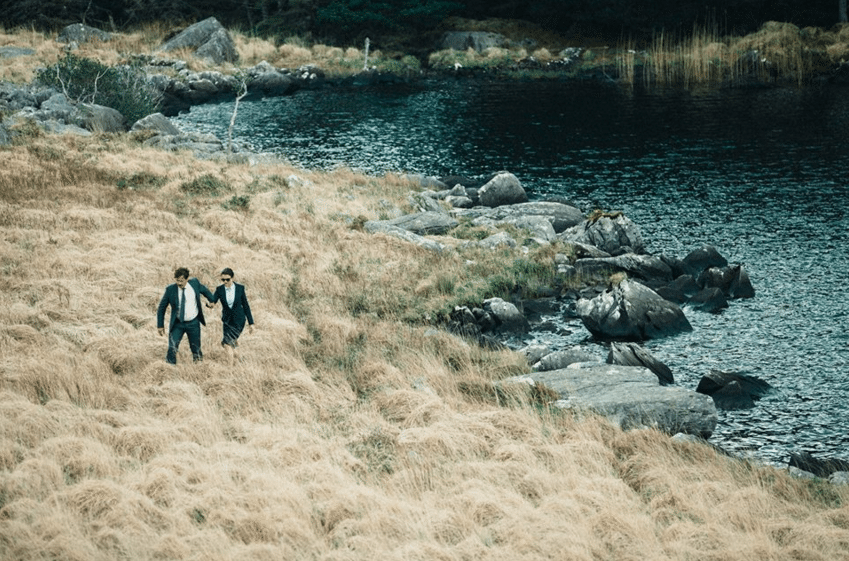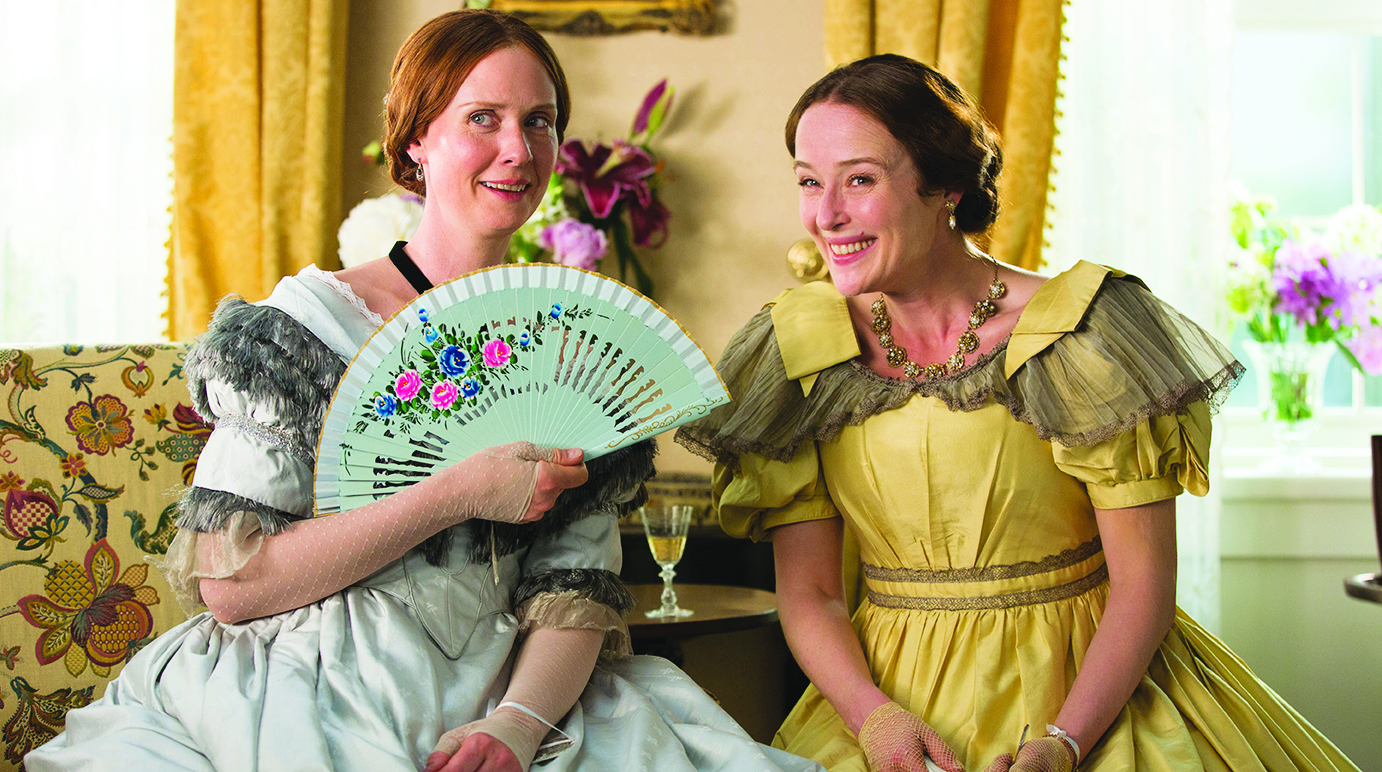By Richard von Busack
There is nothing an audience likes better than the sight of a woman with a sword. A long, long overdue movie, given our taste for superheroics, Wonder Woman deserves to be a hit. All of the things that go right here overwhelm the couple of things that don’t.
The sexually bohemian psychologist William Moulton Marston’s comic book character emerged in 1941, rising in popularity as women took over previously male-held roles during World War II. His modern-day Amazon was derived from numerous legends of women warriors talked about throughout the ancient world. Female Spartans must have been a fearful idea to the ancients, given how women were kept in purdah in Greece and elsewhere.
But the inspired script, credited to Allan Heinberg, has the seemingly immortal Diana, Princess of Themyscira (Gal Gadot) arriving among men in World War I. The 1914-18 war isn’t just a theme park background, with No Man’s Land as the right place for this woman. Wonder Woman’s plot mirrors the real-life experience of the soldiers. The combatants are shipped in with the highest idealism about slaying war itself: Thus “the war to end all wars.” Through bitter experience in the trenches, the soldiers realized that it was just one more war, the worst yet, and perhaps an endless one.
Director Patty Jenkins (Monster) has a good feeling for a Greek myth coming to life. Diana is awe-inspiring in leaping freeze-frame, and the film stages ancient-time flashbacks to look like animated neo-classical paintings. Diana is coming, sword in hand, for man’s ancient enemy Ares, the god of war. The innocence of this mission bemuses the military spy Steve Trevor—Chris Pine, a good man in a reaction shot while he watches as Diana gets to know her own Olympian strength.
The idea of a great woman warrior is just as threatening now as it was to Herodotus.









